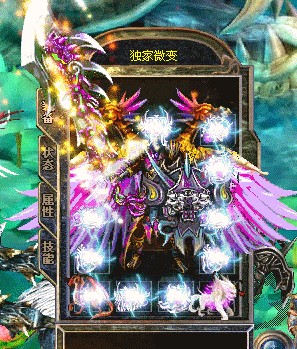网通新开1.76复古传奇私服发布网站
六三开区网
- admin 2024年9月7日0
Chuanqi: Understanding the Essence of Chinese Legends and Myths
Chuanqi, a term rooted deeply in Chinese culture, signifies the rich tapestry of legends and myths that have been woven throughout China’s illustrious history. Translating directly to "fantastic tales," chuanqi embodies the essence of storytelling that is interspersed with elements of the supernatural, moral lessons, and socio-political commentaries. These narratives not only entertain but also serve as a mere reflection of the beliefs, values, and experiences of the Chinese people across different dynasties. The power of chuanqi lies in its ability to transcend time and cultural barriers, inviting readers and listeners into worlds that are both fantastical and instructive.

Historically, the chuanqi genre flourished during the Tang and Song dynasties, as the emphasis on literature and the arts became increasingly prominent. The celebrated works from this period include tales of heroic figures, mythical creatures, and cosmic battles that often symbolize the struggle between good and evil. Chuanqi stories frequently incorporate folklore, historical events, and spiritual beliefs, creating a rich narrative that captures the imagination. Moreover, these fantastic tales often reflect societal issues and express cultural identity, allowing readers to connect with the characters and their journeys in profound ways. As a cornerstone of traditional Chinese literature, chuanqi represents not only a storytelling style but also a means to convey moral teachings and maintain cultural continuity.
The Elements of Chuanqi: Characteristics and Themes
Chuanqi is characterized by several distinct elements that make it both unique and captivating. Central to these stories are extraordinary characters, such as gods, ghosts, and immortal beings, who engage in adventures that often defy the laws of nature. The conflicts faced by these characters usually revolve around profound moral dilemmas, depicting the eternal struggle between benevolence and malevolence. The vivid descriptions and imaginative scenarios draw readers into a world that is as enchanting as it is thought-provoking. Themes of love, sacrifice, and redemption are prevalent in many chuanqi tales, offering valuable lessons that resonate across generations.
Another hallmark of chuanqi is its rich symbolism. Many narratives incorporate symbols that represent broader concepts within Chinese culture, such as harmony, balance, and the cyclical nature of life. For example, the dragon — a common figure in chuanqi — symbolizes strength and good fortune, while the phoenix embodies beauty and grace. By intertwining these symbols with the narratives, chuanqi not only enhances the storytelling experience but also deepens the cultural significance of the tales. The interplay between reality and fantasy in chuanqi fosters an environment where readers can explore the depths of human experience while savoring the allure of the extraordinary. In this way, chuanqi continues to be a vital part of China’s literary heritage, providing insights into the collective psyche of its people.
Questions and Answers
What role do chuanqi tales play in Chinese culture?
Chuanqi tales serve as a vital component of Chinese literature and culture, providing moral lessons, preserving cultural identity, and entertaining audiences. They reflect historical beliefs and societal values, helping to pass down traditions from one generation to the next. These narratives also facilitate a deeper understanding of Chinese philosophy and ethics through engaging storytelling.
How do chuanqi tales impact modern literature?
Chuanqi continues to influence modern literature, inspiring contemporary authors to weave elements of fantasy and folklore into their works. The storytelling techniques, themes, and character archetypes found in chuanqi can be seen in various modern genres, bridging the gap between historical narratives and current literary expressions.
文章内容页下在线分享
Chuanqi: Understanding the Essence of Chinese Legends and Myths
Powered By 2020-2025 Theme By 网站地图
评论列表: